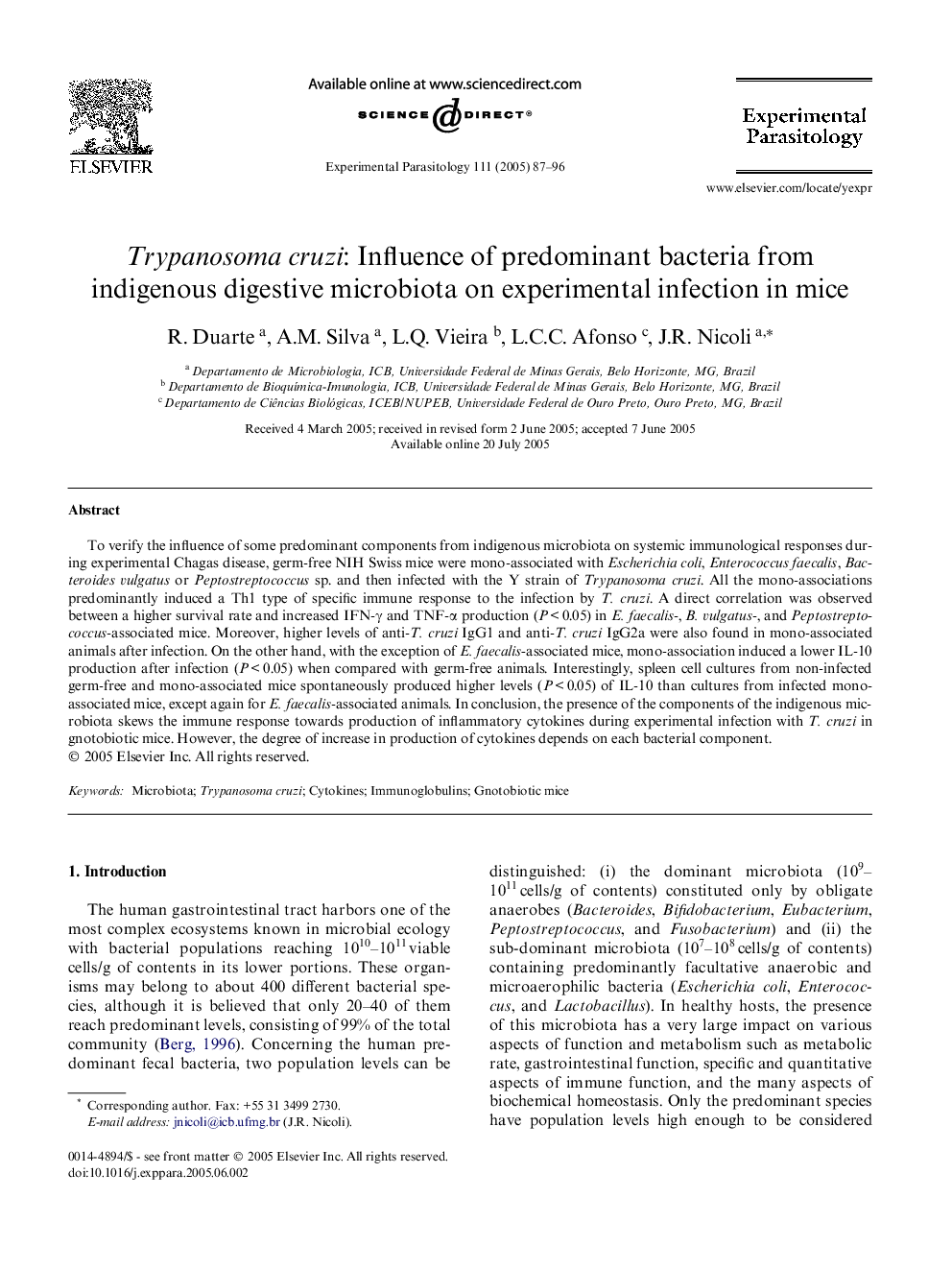| Article ID | Journal | Published Year | Pages | File Type |
|---|---|---|---|---|
| 9442756 | Experimental Parasitology | 2005 | 10 Pages |
Abstract
To verify the influence of some predominant components from indigenous microbiota on systemic immunological responses during experimental Chagas disease, germ-free NIH Swiss mice were mono-associated with Escherichia coli, Enterococcus faecalis, Bacteroides vulgatus or Peptostreptococcus sp. and then infected with the Y strain of Trypanosoma cruzi. All the mono-associations predominantly induced a Th1 type of specific immune response to the infection by T. cruzi. A direct correlation was observed between a higher survival rate and increased IFN-γ and TNF-α production (P < 0.05) in E. faecalis-, B. vulgatus-, and Peptostreptococcus-associated mice. Moreover, higher levels of anti-T. cruzi IgG1 and anti-T. cruzi IgG2a were also found in mono-associated animals after infection. On the other hand, with the exception of E. faecalis-associated mice, mono-association induced a lower IL-10 production after infection (P < 0.05) when compared with germ-free animals. Interestingly, spleen cell cultures from non-infected germ-free and mono-associated mice spontaneously produced higher levels (P < 0.05) of IL-10 than cultures from infected mono-associated mice, except again for E. faecalis-associated animals. In conclusion, the presence of the components of the indigenous microbiota skews the immune response towards production of inflammatory cytokines during experimental infection with T. cruzi in gnotobiotic mice. However, the degree of increase in production of cytokines depends on each bacterial component.
Related Topics
Life Sciences
Immunology and Microbiology
Parasitology
Authors
R. Duarte, A.M. Silva, L.Q. Vieira, L.C.C. Afonso, J.R. Nicoli,
